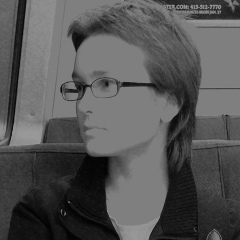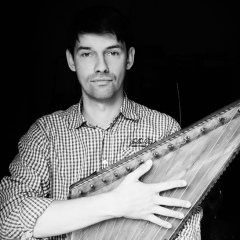Короче. Я тут провёл небольшое исследование. Помните такую песню "Потолок ледяной, дверь скрипучая"? Её ещё Хилль исполнял. Так вот - это песня про тюрьму. ????
Смотрите сами: разберёмся с текстом припева.
????"Потолок ледяной" - лёд имеет кристаллическую структуру, т.е. структура льда - кристаллическая решётка. А это означает потолок в решётку, т.е. знаменитое тюремное "небо в решётку/клеточку над головой". Погнали дальше.
????"Дверь скрипучая" - собственно, скрипучая дверь в камеру, тут все просто.
????"За шершавой стеной тьма колючая" - "шершавым" на зоне называют хуй. Т.е. строчка значит - за хуевой стеной тьма колючая (заметьте, при замене слова, даже ритмика не меняется). Хуевой стеной автор подчёркивает неприязнь к лишению свободы. Колючая тьма здесь подразумевает обилие колючей проволоки на зонах. А также слово тьма говорит о том, что зона находится где-то далеко, в глуши, т.к. света за территорией зоны нет.
????"Как шагнешь за порог, всюду иней" - тут все просто: иней какой? Правильно - синий. Как и форма милиции того времени. Т.е. строчка значит, что за порогом всюду мусора, значит герой сидит по строгачу.
????"А из окон парок синий-синий" - тут автор сокрушается, что на этой зоне много стукачей. Почему? Смотрите сами - пар идёт изо рта, когда мы говорим, пар - это слова, в данном контексте. А синий пар - слова мусорам, т.е. доносы и стукачество.
Вот так, дорогие друзья. Что Вы думаете по этому поводу?
Смотрите сами: разберёмся с текстом припева.
????"Потолок ледяной" - лёд имеет кристаллическую структуру, т.е. структура льда - кристаллическая решётка. А это означает потолок в решётку, т.е. знаменитое тюремное "небо в решётку/клеточку над головой". Погнали дальше.
????"Дверь скрипучая" - собственно, скрипучая дверь в камеру, тут все просто.
????"За шершавой стеной тьма колючая" - "шершавым" на зоне называют хуй. Т.е. строчка значит - за хуевой стеной тьма колючая (заметьте, при замене слова, даже ритмика не меняется). Хуевой стеной автор подчёркивает неприязнь к лишению свободы. Колючая тьма здесь подразумевает обилие колючей проволоки на зонах. А также слово тьма говорит о том, что зона находится где-то далеко, в глуши, т.к. света за территорией зоны нет.
????"Как шагнешь за порог, всюду иней" - тут все просто: иней какой? Правильно - синий. Как и форма милиции того времени. Т.е. строчка значит, что за порогом всюду мусора, значит герой сидит по строгачу.
????"А из окон парок синий-синий" - тут автор сокрушается, что на этой зоне много стукачей. Почему? Смотрите сами - пар идёт изо рта, когда мы говорим, пар - это слова, в данном контексте. А синий пар - слова мусорам, т.е. доносы и стукачество.
Вот так, дорогие друзья. Что Вы думаете по этому поводу?
In short. I did some research here. Remember this song "The ceiling is icy, the door is creaking"? It was still performed by Hill. So this is a song about a prison. ????
See for yourself: let's figure out the text of the chorus.
???? "Ice ceiling" - ice has a crystalline structure, i.e. the structure of ice is a crystal lattice. And this means the ceiling is lattice, i.e. the famous prison "bars / cage overhead". They drove on.
???? "Creaky door" - actually, the creaky door to the cell, everything is simple here.
???? "Behind a rough wall, thorny darkness" - "rough" in the zone is called a dick. Those. the line means - behind the fucking wall, the darkness is prickly (mind you, when you change a word, even the rhythm does not change). With a fucking wall, the author emphasizes his dislike of imprisonment. Barbed darkness here implies an abundance of barbed wire in the zones. And also the word darkness says that the zone is somewhere far away, in the wilderness, because there is no light outside the zone.
???? "As you step over the threshold, there is frost everywhere" - everything is simple: what frost? That's right - blue. As well as the form of the police of that time. Those. the line means that there is everywhere garbage behind the threshold, which means the hero is sitting on a strut.
???? "And from the windows the parks are blue-blue" - here the author laments that there are many informers in this zone. Why? See for yourself - steam comes from the mouth when we speak, steam are words, in this context. And the blue vapor is words for trash, i.e. denunciations and snitching.
So, dear friends. What do you think about this?
See for yourself: let's figure out the text of the chorus.
???? "Ice ceiling" - ice has a crystalline structure, i.e. the structure of ice is a crystal lattice. And this means the ceiling is lattice, i.e. the famous prison "bars / cage overhead". They drove on.
???? "Creaky door" - actually, the creaky door to the cell, everything is simple here.
???? "Behind a rough wall, thorny darkness" - "rough" in the zone is called a dick. Those. the line means - behind the fucking wall, the darkness is prickly (mind you, when you change a word, even the rhythm does not change). With a fucking wall, the author emphasizes his dislike of imprisonment. Barbed darkness here implies an abundance of barbed wire in the zones. And also the word darkness says that the zone is somewhere far away, in the wilderness, because there is no light outside the zone.
???? "As you step over the threshold, there is frost everywhere" - everything is simple: what frost? That's right - blue. As well as the form of the police of that time. Those. the line means that there is everywhere garbage behind the threshold, which means the hero is sitting on a strut.
???? "And from the windows the parks are blue-blue" - here the author laments that there are many informers in this zone. Why? See for yourself - steam comes from the mouth when we speak, steam are words, in this context. And the blue vapor is words for trash, i.e. denunciations and snitching.
So, dear friends. What do you think about this?

У записи 68 лайков,
6 репостов.
6 репостов.
Эту запись оставил(а) на своей стене Лорд Пневмослон





































































